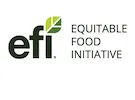In support of the fresh produce industry’s commitment to the Ethical Charter on Responsible Labor Practices, retail buyers are increasingly asking grower-shippers to demonstrate how they are proactively keeping forced labor out of their workforce. Equitable Food Initiative has relaunched its online Responsible Recruitment Scorecard as an interactive version with a digital self-assessment to help growers identify their risk factors in the recruitment process and pursue recommended action steps.
Data from the Polaris Project indicates that 41% of human trafficking reports from workers with temporary work visas come from H-2A workers in agriculture, and of those, the majority are in the fresh produce industry. In addition, the majority of cases also involve payment of recruitment fees.
Kenton Harmer, managing director of EFI, remarked, “Responsible recruitment matters to producers not just because bad practices expose them and their customers to severe commercial risks, but also because ethical recruitment results in better alignment of organizational and worker interests, improving food safety, productivity and quality.”
“The responsible recruitment of workers is an important and complicated issue that isn’t expected to be addressed quickly or easily,” said Keith Neal, vice president/general merchandise manager of fresh produce for Costco Wholesale. “We are interested in doing business with suppliers who are learning to understand the complexity of the issue, and to elevate responsible recruitment practices. Using EFI’s Responsible Recruitment Scorecard is one definitive way to begin the process,” Neal added.
The Responsible Recruitment Scorecard is available free in both English and Spanish here. Grower-shippers can choose from two versions of a detailed questionnaire — one designed to help identify risks that are often associated with the foreign recruitment of workers and another to determine risks that can be present when working with farm labor contractors.
After the confidential questionnaire is filled in, the scorecard calculates key areas growers can address to drive continuous improvement across their recruitment processes, and it provides directional guidance. The scorecard is a self-assessment that helps identify often invisible risks. Results help determine which recruiters and farm labor contractors are most aligned with the ethos of the business and identify partnerships that reduce business vulnerabilities around forced labor. The Scorecard was developed with support from the Walmart Foundation.
“After using the previous version and having a test drive of the new version, I found the Scorecard to be a user-friendly online tool that will help growers or labor providers ask the right questions and implement practical steps to improve their labor supply chain,” shared Matt Rogers, general manager of AgSocio.
The produce industry’s 2018 release of the Ethical Charter on Responsible Labor Practices created an increased demand for social responsibility and called for every farmworker to be treated with dignity and respect. It also states that employers must not tolerate modern slavery, including debt bondage.
 For more information:
For more information:
LeAnne R. Ruzzamenti
Equitable Food Initiative
Tel: +1 (202) 524-0540
Email: leanne@equitablefood.org
www,equitablefood.org
